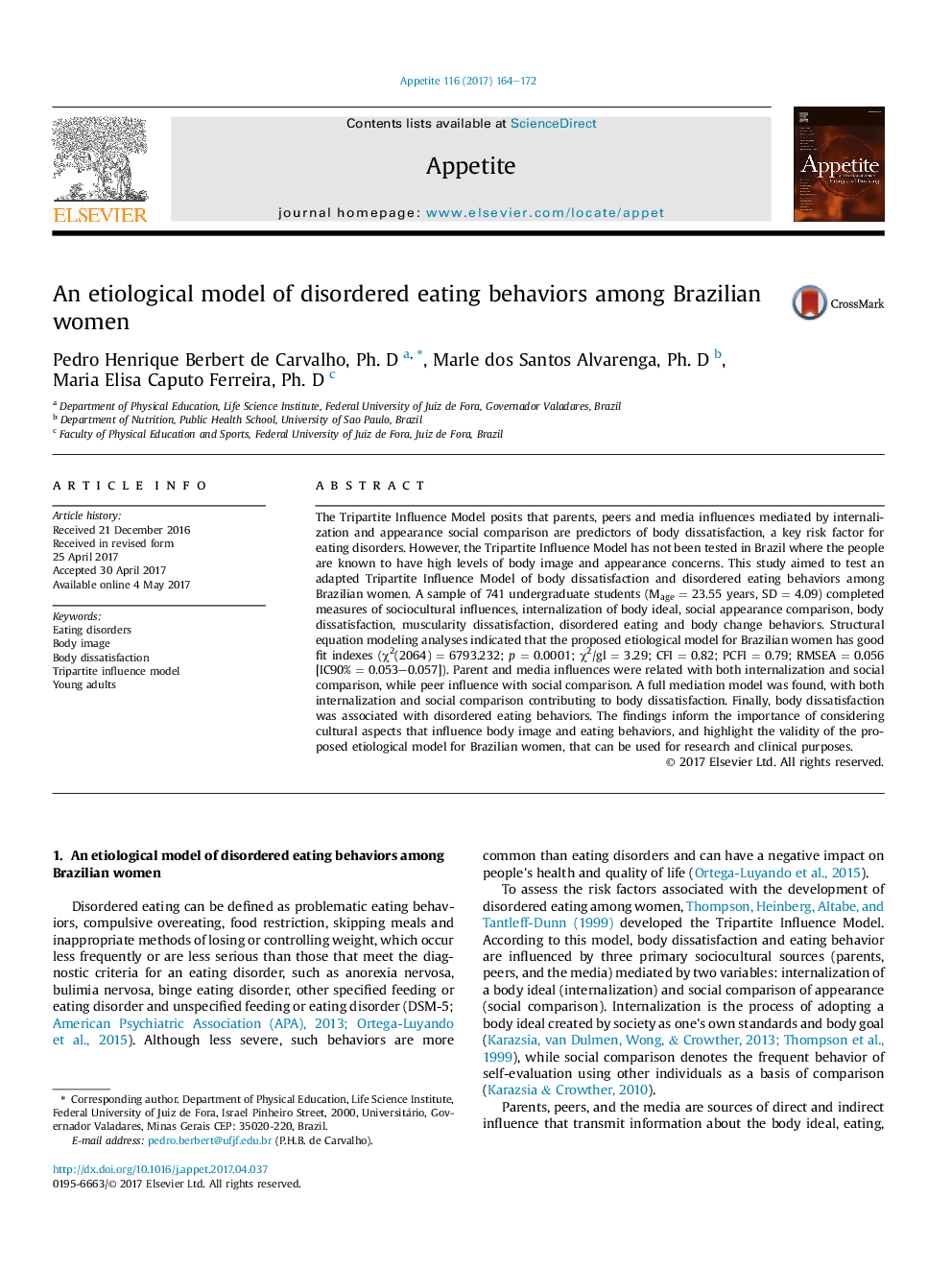ترجمه فارسی عنوان مقاله
یک مدل علمی رفتارهای خوراکی اختلال در زنان برزیل
عنوان انگلیسی
An etiological model of disordered eating behaviors among Brazilian women
| کد مقاله | سال انتشار | تعداد صفحات مقاله انگلیسی |
|---|---|---|
| 116195 | 2017 | 9 صفحه PDF |
منبع

Publisher : Elsevier - Science Direct (الزویر - ساینس دایرکت)
Journal : Appetite, Volume 116, 1 September 2017, Pages 164-172
ترجمه کلمات کلیدی
اختلالات اشتها، تصویر بدن، نارضایتی بدن، مدل نفوذ سه جانبه، جوانان،
کلمات کلیدی انگلیسی
Eating disorders; Body image; Body dissatisfaction; Tripartite influence model; Young adults;

